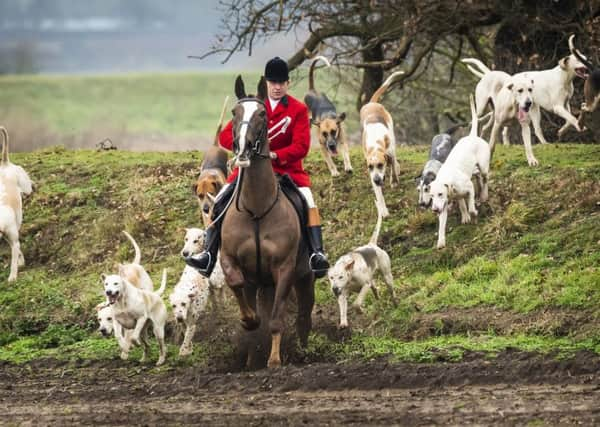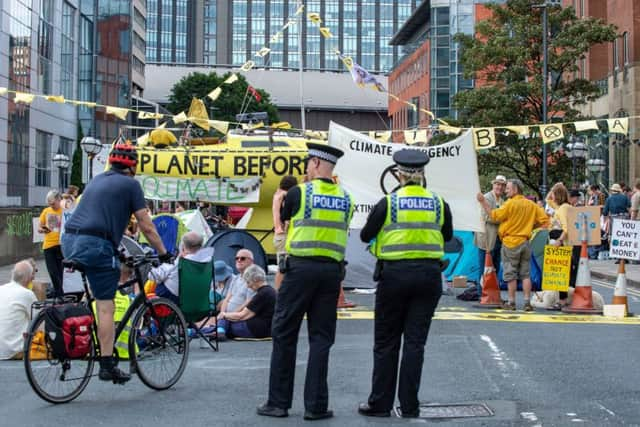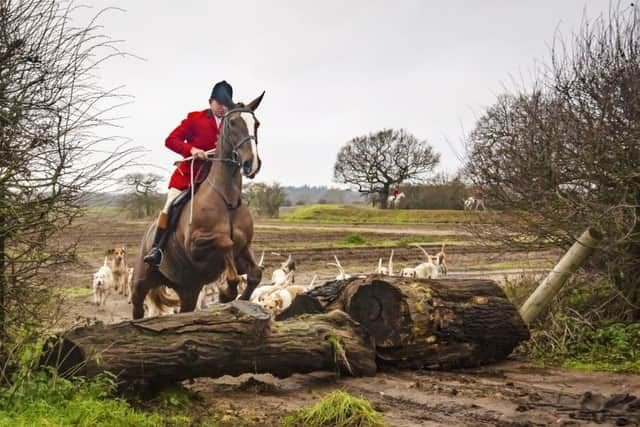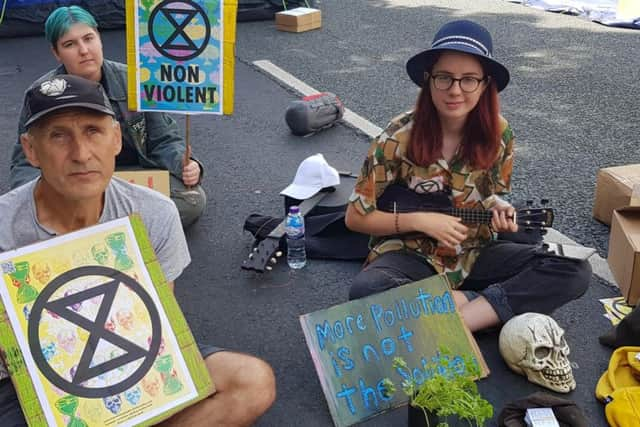Bad politics for Labour to focus on fox hunting at expense of real issues – Countryside Alliance chief Tim Bonner


But it is also clear that ‘the environment’ covers a vast swathe of issues and that while pressure groups might relentlessly pursue their own agendas the public is much more, or less, concerned about some environmental issues than others.
Advertisement
Hide AdAdvertisement
Hide AdFor that reason we at the Countryside Alliance have set out to unpack environmentalism: to identify what are those issues that the public is really concerned about.


Our research found conclusively that when you unpack voters’ concerns on environmental issues, they are clearly much more worried about the planet: about climate change, plastics and pollution, than they are about niche animal rights issues like hunting and badger culling.
Advertisement
Hide AdAdvertisement
Hide AdWhen asked which three environmental issues are most important 58 per cent listed climate change, 55 per cent the use of unbiodegradable plastics and 41 per cent air pollution.


Waste disposal (34 per cent), deforestation (29 per cent), decline in the bee population (24 per cent) and use of fossil fuels (22 per cent) were all of significant concern to voters.
In stark contrast, two issues which have generated huge amounts of media coverage and hours of Parliamentary debate were judged to be electorally irrelevant by the vast majority of voters. Just six per cent selected fox hunting and badger culling was even less important, with only three per cent identifying it as important.
When examining Conservative voters specifically, we also found that they identify predominantly as either rural (24 per cent) or semi-rural (35 per cent) compared to 56 per cent of Labour voters who identify as urban. This is significant and highlights the importance of the rural vote in both the internal election for Conservative Party leader and in any future general election.
Advertisement
Hide AdAdvertisement
Hide Ad

This new research tallies up with previous polling. For instance, in the week before the 2017 election, when over 2,000 people were asked to identify three issues that would affect their vote at the general election, just eight (0.39 per cent) mentioned hunting.
People ranked hunting well below wind farms, green belt development, mobile phone connectivity, animal welfare and HS2. These findings supported research we had carried out before both the 2010 and 2015 elections.
As with the recent furore that unfolded following Jeremy Hunt’s comments on supporting a free vote on fox hunting, some people were desperate to claim that hunting had a hand in Theresa May’s election meltdown. This theory conveniently forgets that David Cameron won a majority promising to look again at the hunting ban, and our research confirms that for all the manufactured dissent on social media, hunting is about the last issue that decides anyone’s vote.
The reality of public attitudes contrasts sharply with the assumptions of some commentators and politicians, especially those who live in a media and social media bubble rather than the real world. The press coverage and social media traffic is clearly not solely the result of public interest, but much more the consequence of single-issue campaigns.
Advertisement
Hide AdAdvertisement
Hide AdIn the case of hunting, in particular, those campaigns are aided and abetted by the extraordinary spectacle of hunts and the long history of an activity which, quite erroneously, has become synonymous with political arguments over class and power.
What our research shows, however, is that whilst these issues remain an obsession with the chattering classes, politicians can take an evidence-based approach to legislation without worrying that it will affect voters’ attitudes.
Rather than wasting time pursuing narrow campaigns on the overtly political animal rights agenda, sensible politicians should be embracing the opportunity to address the public’s deeply-held concerns about the future of our planet.
When four times more people are concerned about the decline in our bee population than they are about fox hunting, it is just plain bad politics that the Labour party, for instance, continues to pursue even more restrictive legislation on hunting while ignoring the real concerns of potential voters.
Advertisement
Hide AdAdvertisement
Hide AdFor too long the environmental agenda has been used as a cover to promote a political animal rights agenda. Our planet and our countryside face serious challenges and voters are seriously worried about them. It is time for politicians to respond.
Tim Bonner is chief executive of the Countryside Alliance.